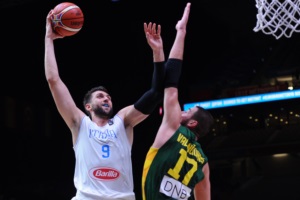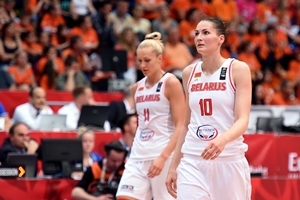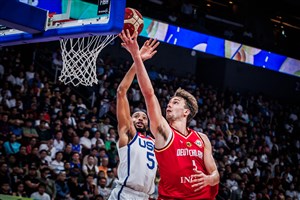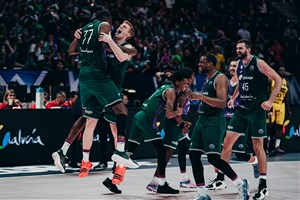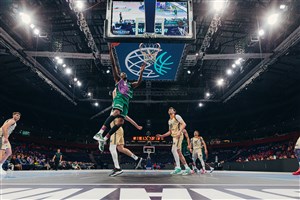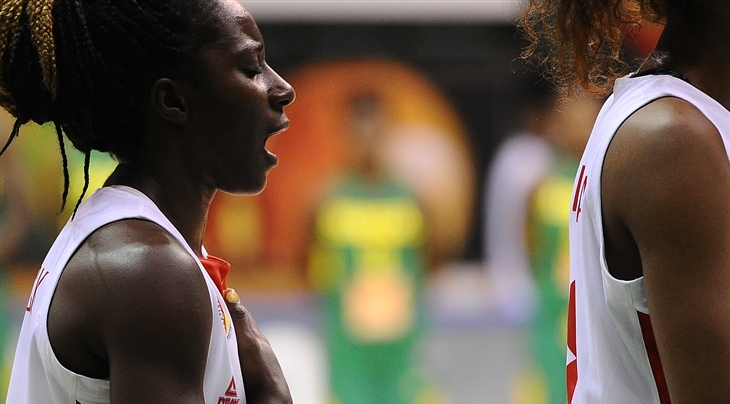
A look at Cameroon’s loss to Australia
SHEFFIELD (Julio Chitunda's African Message) - With just a week to go to the start of the 2016 FIBA Women's Olympic Qualifying Tournament (WOQT), Australia gave Cameroon a glimpse of world-class basketball.
#FIBAOQT tips off 13 June.Wake up call 4 AfroBasketWomen runners-up Australia trounce Cameroon in preparation 82-28 pic.twitter.com/G5bknoaCFi
— Júlio Chitunda (@JChitunda) June 4, 2016
Australia, the No.2 team in the FIBA World Ranking Women, on Saturday beat Cameroon 82-28 on the final day of the four-nation tournament in Pomezia, Italy. Cameroon's Basketball Federation (FECABASKET) came forward acknowledging its team's humiliating defeat.
As Cameroon fans reacted angrily on the FECABASKET Facebook page, the country's basketball governing body reminded fans that the team is currently experiencing a learning process. But some don't seem to have accepted that explanation easily.
Prior to Saturday’s defeat to Australia - who will be medal contenders at the Rio Olympics - Cameroon had mixed results, including a 61-57 win over Belgium followed by a 60-48 defeat to hosts Italy.
I truly hope this setback against the Opals doesn't affect the team mentally and I look forward to seeing the Central Africans winning at least a game at the WQOT in Nantes, France, where 12 teams will be battling for the remaining five berths to Rio 2016.
But apart from the humiliating defeat, what else does Cameroon's display against Australia mean? Looking at their performance, my first impression is that a team which can score only seven points per quarter, register two assists in a game, is on the receiving end of a 10 of 20 three-point shooting display and turns the ball over 22 times will face serious trouble at the WOQT. Then again, it's only fair to give Cameroon the benefit of doubt.
What can't be denied is the fact that FECABASKET's decision to revamp the team ahead of the WOQT came at the wrong time and that defeat to Australia proved it.
Only three players - Ramses Lonlack, Priscilla Mbiandja and Marie-Ange Mfoula - remain from the Cameroon side that finished runners-up at AfroBasket Women 2015. This means that new play-caller Stefano Bizzozi of Italy needs to bring the very best of his coaching skills in order for the team to play more than two Group Phase games in Nantes, where they will face Argentina and Turkey in Group B.
FECABASKET insists it is preparing the team for next year's African Championship and that it is still in time to become competitive enough for the Nantes showdown. Its moments like this that I feel that a 'Team Africa' would do a better job than individual countries on the world stage.
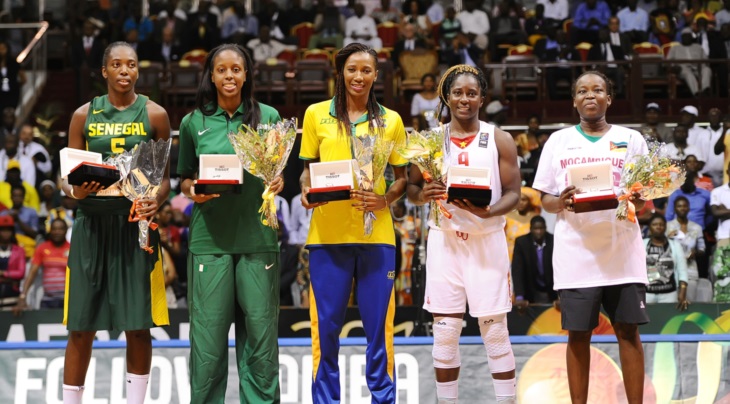
AfroBasket Women 2015 All-Star Five - from left to right: Aya Traore (SEN), Adaora Elonu (NGR), Geraldine Robert (GAB), Ramses Lonlack (CMR) and Deolinda Ngulela (MOZ)
I know Africa is not a country and Cameroon has every right to take part in a major competition like the WOQT. I also know that Africa is a diverse continent with a multitude of cultures, ethnic groups, languages and social issues that differ from country to country. But when an African country steps onto the big stage, Africa becomes one.
But when I recall the USA's 92-38 win over Angola at the London 2012 Olympics, the Australia's 96-39 triumph over Senegal at the Sydney 2000 Games and the USA's 119-44 against Angola at the 2014 FIBA Women's World Championship, I can't stop but think about the competitive gap between African countries and the some big teams on the world stage.
Don't get me wrong, I have covered the sport on the continent long enough to believe that Africa isn't short of talented players. It's just a matter of reviewing how the game is managed in individual countries and in some instances those defeats don't necessarily reflect the potential of some African teams.
My top12 AfroBasketWomen2015 Deghady, Ngulela, Robert, Kankou, Sanni, Nadir, Lonlack, Awad, Tirera, Adaora, Sy, Madu pic.twitter.com/1SzZ1dtWzq
— Júlio Chitunda (@JChitunda) September 30, 2015
Off the top of my head, I could pick a 12-player African roster and a coach that could easily compete on the world stage.
12 best players #AfroBasketWomen2015 should represent Africa @ RIO2016 surely they'd b more competitive than a NT. So many dispersed talents
— Júlio Chitunda (@JChitunda) September 29, 2015
It's been two decades since women's national teams from Africa first competed at the Olympics and the results remain as worrying as Cameroon's loss to Australia.
Back in the 1996 Olympics, the Democratic Republic of Congo (then Zaire) finished 0-7 in Atlanta. Four years later, Senegal returned home 0-6 from the Sydney Games, then Nigeria managed a 1-5 mark thanks to a win over Korea in Athens in 2004. Mali (0-5) and Angola (0-5) followed suit in 2008 and 2012 respectively.
So, over the course of the past five Olympics, African teams have combined for a dreadful 1-28 mark. Perhaps the argument of Cameroon using the upcoming WOQT for next year's African championships is no longer valid.
It's about time to be real and become competitive.
Julio Chitunda
FIBA
FIBA's columnists write on a wide range of topics relating to basketball that are of interest to them. The opinions they express are their own and in no way reflect those of FIBA.
FIBA takes no responsibility and gives no guarantees, warranties or representations, implied or otherwise, for the content or accuracy of the content and opinion expressed in the above article.

